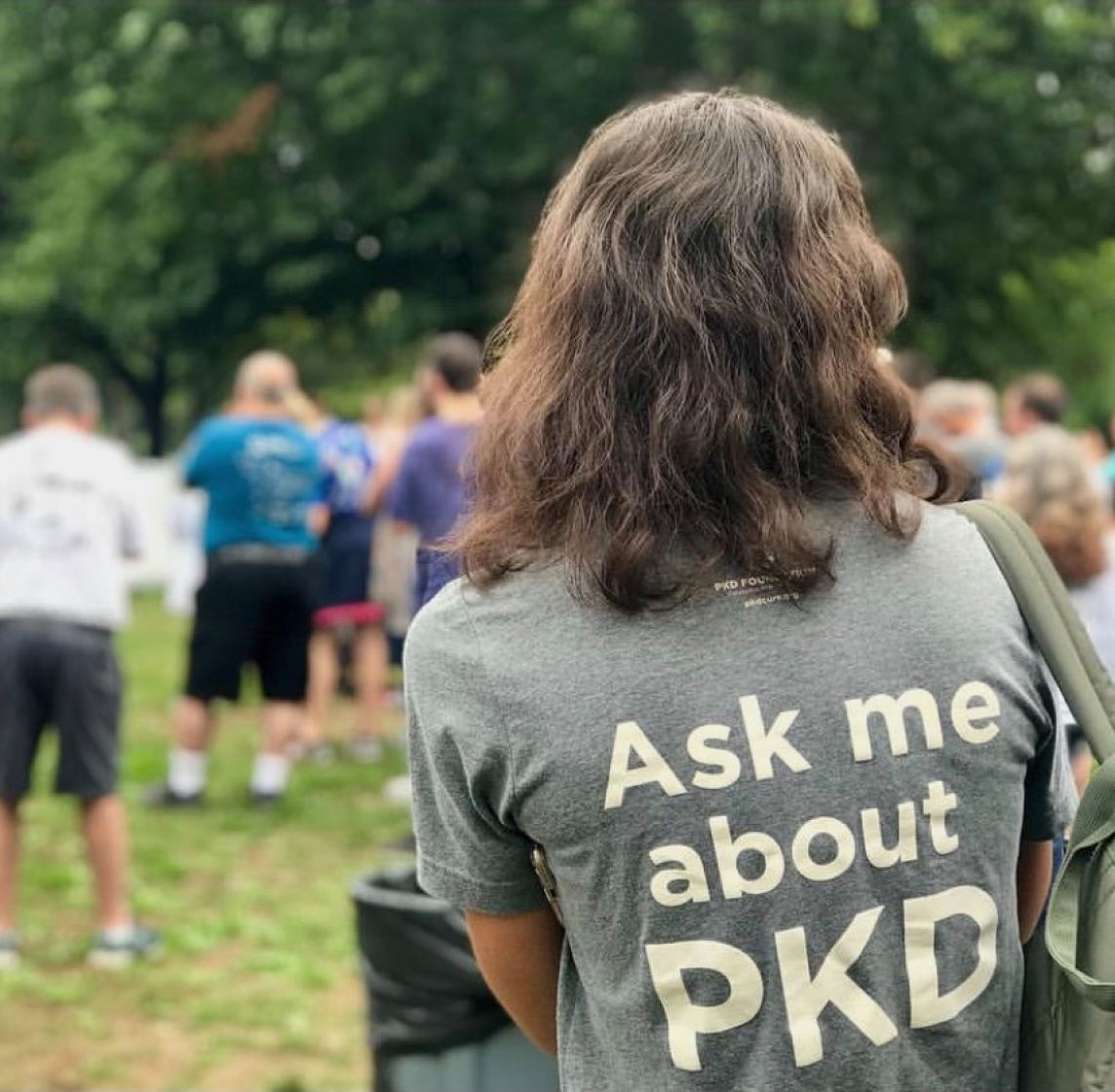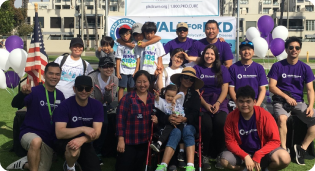Since the establishment of the PKD Foundation in 1982 . . .
| $1B+Leveraged in federal research funding | $28Min PKD Foundation research project funding |
| 42+Years of giving hope | 50+Local communities |

To find treatments and a cure for polycystic kidney disease (PKD), Jared J. Grantham, M.D., and Joseph H. Bruening founded the PKD Foundation on August 20, 1982.
This original vision has been at the heart of the Foundation’s work ever since. When they started, no one knew much about PKD. The genes hadn’t yet been identified, and only a small number of researchers were working in PKD science.
Since then, the PKD Foundation, headquartered in Kansas City, has continued investing in research and researchers. These researchers include: Vicente Torres, M.D., Jim Calvet, Ph.D., Ronald Perrone, M.D., Terry Watnick, M.D., Arlene Chapman, M.D., Steve Somlo, M.D., and many others. A host of institutions have been supported by the Foundation as well, including Mayo Clinic Translational PKD Center, University of Kansas, Tufts University, University of Maryland, and Yale University.

How Far We’ve Come
Learn about our progress toward a future without PKD.
The PKD Research Foundation is established by Jared Grantham, M.D., and Joseph Bruening to find treatments and a cure for PKD.
First PKD Foundation (PKDF) research grant of $25,000 is awarded to William Bennett, M.D., who went on to be awarded the PKD Foundation Jared J. Grantham Distinguished Achievement Award and honored for his contributions to nephrology.
First PKD Progress magazine produced. Chromosomal location of a human ADPKD gene discovered.
First local PKD Community formed in Chicago. Evidence found that cysts are benign neoplasms. Proto-oncogenes are found to be elevated in cysts.
Explant cultures of human cysts developed for laboratory studies of pathogenesis and therapy of ADPKD.
First PKD National Convention held in Kansas City to educate patients and health care professionals about PKD. Discovery of the important role for cyclic AMP to increase cell proliferation in cystic disease.
PKDF lobbies Congress to include the first Appropriations Committee report language about PKD research support by the National Institutes of Health (NIH), encouraging the NIH to expand research in the pathogenesis and treatment of PKD.
Important factors affecting the progression of cystic disease found in a large cohort of patients.
The National Institutes of Health (NIH) makes major federal investment in PKD research of $5.73 million.
PKD1 gene is discovered (responsible for 85% of ADPKD cases).
PKD2 gene is discovered (responsible for 15% of ADPKD cases).
Polycystin 1 & 2, protein products of PKD genes identified.
NIH establishes PKD Centers of Excellence at four research institutions. PKD Foundation website is launched.
900 PKD patients, families and friends raise $214,000 in the first Walk for PKD. Consortium for Renal Imaging Studies of PKD (CRISP) study begins as the first longitudinal study of PKD patients supported by the NIH.
Strategic planning meeting for PKD co-sponsored with NIH occurred.
ARPKD gene is discovered. Vasopressin receptor is identified as possible therapeutic target for PKD.
Tolvaptan, which targets the vasopressin receptor and the first drug to potentially treat PKD, enters clinical trials.
HALT clinical trial to study effects of blood pressure control in PKD patients begins.
U.S. Senate passes first-ever National PKD Awareness Week Resolution to help promote the Walk for PKD.
FDA (US Food and Drug Administration) and PKD Foundation workshop Clinical Trial Endpoints in PKD held.
First PKD Foundation United on the Hill event is held in Washington D.C. to push for more federal funding for PKD research and to pass the Genetic Information Nondiscrimination Act (GINA). After a 13-year fight, GINA is passed by Congress and signed into law.
PKDOC (PKD Outcomes Consortium) is formed to support using total kidney volume (TKV) as an endpoint for human clinical trials.
PKD Foundation and FDA meet to discuss the PKDOC database analysis. Results of the TEMPO 3:4 clinical trial are presented at the American Society of Nephrology Kidney Week meeting.
Tolvaptan, the first drug to show promise in treating PKD, is accepted for priority review by the FDA.
PKDOC submits final qualification package for total kidney volume (TKV) to the FDA and European Medicines Agency (EMA). Fifteen two-year research grants awarded by PKDF for a total investment of $2.4 million. REPRISE, a phase 3b study of tolvaptan for adult patients with ADPKD by Otsuka, begins enrollment. Tolvaptan is approved in Japan as a treatment for ADPKD. Results of HALT-PKD clinical trials are presented at the American Society of Nephrology Kidney Week meeting.
Tolvaptan is approved in Canada as a treatment for ADPKD. Five two-year PKD research fellowships are awarded by PKDF to rising star clinicians and scientists for a total investment of $500,000. FDA and EMA approve TKV as prognostic enrichment biomarker for use in clinical trial design. The Jared J. Grantham Research Fellowship is established with the American Society of Nephrologists (ASN) to support PKD-related research in perpetuity. PKD Foundation’s $500,000 investment is matched by $1.5 million from the ASN.
Fifteen two-year research grants awarded by PKDF for a total investment of $2.4 million. ADPKD Biomarker Summit, sponsored by the PKD Foundation, is held to define the regulatory path for approval of novel therapeutic candidates for early treatment of PKD.
Results of REPRISE (tolvaptan) clinical trial are released at ASN’s Kidney Week. According to results, tolvaptan reduced the rate of decline of kidney function by 35% over a 12-month period in ADPKD patients.
Tolvaptan approved in the United States as the first treatment for ADPKD.
First nationwide patient registry for people with ADPKD launched.
Comprehensive Immunosuppressive Drug Coverage for Kidney Transplant Patients Act of 2019 passed.
Centers of Excellence in ADPKD program launched.
Supported passage of the U.S. Organ Procurement and Transplantation Network Act (P.L. 118-140) into law to modernize and improve the OPTN. Launched enhancements to the ADPKD Registry to include patient-provided electronic health records.
Expanded the Centers of Excellence program to include Pediatric Centers of Excellence treating both ARPKD and ADPKD patients.





